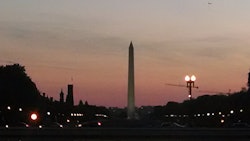 By Michele Brooke, Esq.
By Michele Brooke, Esq.By Michele Brooke, Esq.
Unincorporated land refers to a geographic location that lacks municipal organization, meaning the city or town does not have its own municipal services or municipal code/ordinances. At first glance, an unincorporated area may appear to be a regular city, but it is not; it is more of a community or town. Unincorporated areas are often governed by a board of supervisors or a town council. Some unincorporated cities or towns are well organized, having neighborhood committees, community centers, neighborhood watch programs, historical societies, country clubs, and the like. The citizens of these towns often take great pride in their community.
Legal cannabis dispensary businesses are governed not only by state law, but by the local ordinances or municipal codes drafted by the administrative bodies of the city in which they are located. In some cases, local ordinances permit cannabis businesses to exist in certain zones of the city. In other cases, local ordinances restrict dispensaries or other cannabis outlet businesses, including mobile services. Zoning ordinances are used to determine how land is designated for use in the city. For example, a certain zone may be set aside for residential use or industrial use; this is part of the city plan. An unincorporated area may not have zoning ordinances per say, but the town council may still be on the watch for businesses that do not fit in the community.
In order to be law abiding (not wanting to violate local ordinances), some cannabis businesses locate in unincorporated areas. Unincorporated areas can be found easily via Google search. These unincorporated areas remain subject to federal and state laws. Setting up business in an unincorporated area does not mean a business is scot-free, however. If a dispensary is found by members of the town to be a nuisance, for example, the town council still could seek injunctive relief from a court. An injunction asks the court to make the business stop its operation, even if there is no zoning ordinance being broken and the dispensary or collective is operating in compliance with state law.
Thus, dispensary businesses operating in unincorporated areas, including mobile businesses, should maintain a low profile, be discrete and be good neighbors. Keep your business to yourself, keep your facility neat and clean, and be respectful of the town's people who have made an unincorporated area their home.
Mobile business owners are cautioned not to make mobile deliveries in cities that have ordinances forbidding mobile dispensary services; it is better to arrange for legal deliveries in unincorporated areas, or cities that permit delivery services. Many a legal medical marijuana mobile-service provider has gotten into trouble by providing medical cannabis to an undercover police officer in cities that do not permit mobile services, even though they were in compliance with state law. Even if the charges are later dismissed, it is a big hassle–and attorney fees are not cheap.
Obeying the law is the key objective, whether you are in an incorporated or unincorporated area.
Michele Brooke is an attorney in California who practices civil litigation and civil cannabis law. She is a member of Americans For Safe Access, NORML and the American Herbal Products Association, Cannabis Committee. Visit her website:Â www.brookelawgroup.com


























